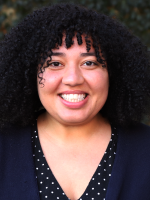Water advocates are calling for more transparency with Detroit’s new water affordability plan.
Advocates joined U.S. Representative Rashida Tlaib on Thursday to demand that the Detroit Water and Sewerage Board release the water affordability plan in writing in its entirety.
Right now, advocates say they haven't seen it and the plan has not yet been released to the public.
The program, which is being called the DWSD Lifeline Plan, sets water rates for some residents based on their income level.
Advocates want it funded for the long-term. They also say it should be open to all residents whose income is less than double the federal poverty level.
And they want the board to be open to public comment for at least 30 days and to implement some of the changes that water advocates have been calling for for decades.
Detroit Water and Sewer Department’s Director Gary Brown said the total bill will be 1.8% of the average monthly household income for each tier.
In a June press conference, city officials said that 70% of Detroiters will be eligible for some assistance with their water bill and that 78% of city residents will see a decrease in their water bill.
Sonja Bonnett is an activist with Detroit Justice Center. She shared what it’s been like to have a water shutoff.
"Have you ever had to go to your neighbor and knock on they door and say listen, I can throw you a couple bucks next week if you let me run your hose through my window, so we can wash dishes? Or so that we can take a bath," she said.
Tlaib, who is currently running in a primary election in the 12th District, and other advocates, asked if the 4,500 gallon thresholds for bills are possible and if water rates will increase for residents outside of the Lifeline Plan.
She says these are among the questions that have not been answered by the water department.
Detroit has shut off water to about 170,000 residents in the past decade, said Emily Kutil, a member of We The People Detroit community coalition and co-author of Mapping the Water Crisis.
She says almost a quarter of these families had their water shut off repeatedly.
"Unfortunately, the water department has misrepresented water shutoffs. For example, repeating that residents are only shutoff for 48 hours on average when our research has shown that shutoffs have averaged between 30 and 45 days," Kutil said. "Our research has also shown that shutoffs have dangerous health implications, which the city has consistently denied."
Director Brown said in an emailed statement that the Water Department continues to engage with community leaders and water advocates.
"DWSD has provided all the documents, including the rate and affordability studies, used to develop the Lifeline Plan to the water advocates. DWSD is currently drafting the working policy for the plan that will be shared with community leaders and water advocates, as well as posted on the website," Brown said in an emailed statement.
The email also said that any residents who go over the 4,500 gallon allotment will be reviewed on a case-by-case basis.
No Detroit household who is enrolled in the Detroit Lifeline Plan or the DWSD 10/30/50 Plan will not face water shutoffs. The statement did not specify whether those who are not enrolled or ineligible will face water shutoffs.
Rev. Roslyn Bouier is the Executive Director of Brightmoor Connection Food Pantry. She wants water shutoffs ended in Detroit, period.
"I’ve watched mothers have children ripped from their arms, because of the lack of water. To have to face the stigma and degradation of not being able to pay a water bill," she said.
She says that she has seen cases of hepatitis A explode in her community due to water shutoffs.
Water advocates asked for a 30-45 day engagement period to discuss the water plan prior to its implementation.
Brown says the department will have a 60-day engagement period with 10 community events including one in each council district. Those dates will be announced next week.
"Engagement has to come from the ground up, from people actually experiencing watershutoffs," said Teresa Landrum, Governor’s Appointee on the Michigan Advisory Council on Environment Justice. "What is there arrearages? What do they feel they can pay? How many people are in your household? You have to take all of that into consideration and they are not doing that."




